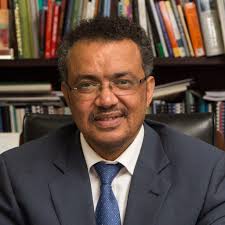|
Getting your Trinity Audio player ready…
|
As malaria continues to be a primary cause of childhood illness and death in sub-Saharan Africa with more than 260 000 African children under the age of five who die from the disease annually, the World Health Organization (WHO) has recommended the widespread use of the RTS, S/AS01 (RTS, S) malaria vaccine among children in sub-Saharan Africa and in other regions with moderate to high P. falciparum malaria transmission.
According to WHO, key findings of the pilots informed the recommendation based on data and insights generated from two years of vaccination in child health clinics in the three pilot countries, implemented under the leadership of the Ministries of Health of Ghana, Kenya, and Malawi.
“The recommendation is based on results from an ongoing pilot programme in Ghana, Kenya, and Malawi that has reached more than 800 000 children since 2019.
“This is a historic moment. The long-awaited malaria vaccine for children is a breakthrough for science, child health and malaria control,” said WHO Director-General Dr. Tedros Adhanom Ghebreyesus.
He emphasised that using this vaccine on top of existing tools to prevent malaria could save tens of thousands of young lives each year.
In recent years, WHO and its partners have been reporting a stagnation in progress against the deadly disease.
“For centuries, malaria has stalked sub-Saharan Africa, causing immense personal suffering,” said Dr Matshidiso Moeti, WHO Regional Director for Africa.
“We have long hoped for an effective malaria vaccine and now for the first time ever, we have such a vaccine recommended for widespread use. Today’s recommendation offers a glimmer of hope for the continent which shoulders the heaviest burden of the disease and we expect many more African children to be protected from malaria and grow into healthy adults.”
It is said RTS, S/AS01 malaria vaccine should be provided in a schedule of 4 doses in children from 5 months of age for the reduction of malaria disease and burden.
Pertaining to the key findings of the malaria vaccine pilots, WHO said vaccine introduction is feasible to deliver.
“It improves health and saves lives, with good and equitable coverage of RTS, S seen through routine immunization systems. This occurred even in the context of the COVID-19 pandemic. Reaching the unreached: RTS,S increases equity in access to malaria prevention.”
Data from the pilot programme showed that more than two-thirds of children in the 3 countries who are not sleeping under a bednet are benefitting from the RTS,S vaccine.
“Layering the results of the tool in over 90% of children benefitting from at least one preventive intervention (insecticide-treated bednets or the malaria vaccine)” said WHO.
In terms of safety profile WHO said it was strong and to date, more than 2.3 million doses of the vaccine have been administered in 3 African countries and the vaccine has a favorable safety profile.
“No negative impact on the uptake of bednets, other childhood vaccinations, or health-seeking behavior for febrile illness. In areas where the vaccine has been introduced, there has been no decrease in the use of insecticide-treated nets, uptake of other childhood vaccinations or health-seeking behaviour for febrile illness.”
The organisation also highlighted that there was a high impact in real-life childhood vaccination settings.
“Significant reduction (30%) in deadly severe malaria, even when introduced in areas where insecticide-treated nets are widely used and there is good access to diagnosis and treatment.”
It emerged that the vaccine is highly cost-effective.
“Modelling estimates that the vaccine is cost-effective in areas of moderate to high malaria transmission.”
The next steps for the WHO-recommended malaria vaccine will include funding decisions from the global health community for broader rollout, and country decision-making on whether to adopt the vaccine as part of national malaria control strategies.
In as much as financial support is concerned, WHO said,” Financing for the pilot programme has been mobilized through an unprecedented collaboration among three key global health funding bodies: Gavi, the Vaccine Alliance; the Global Fund to Fight AIDS, Tuberculosis, and Malaria; and Unitaid.”
